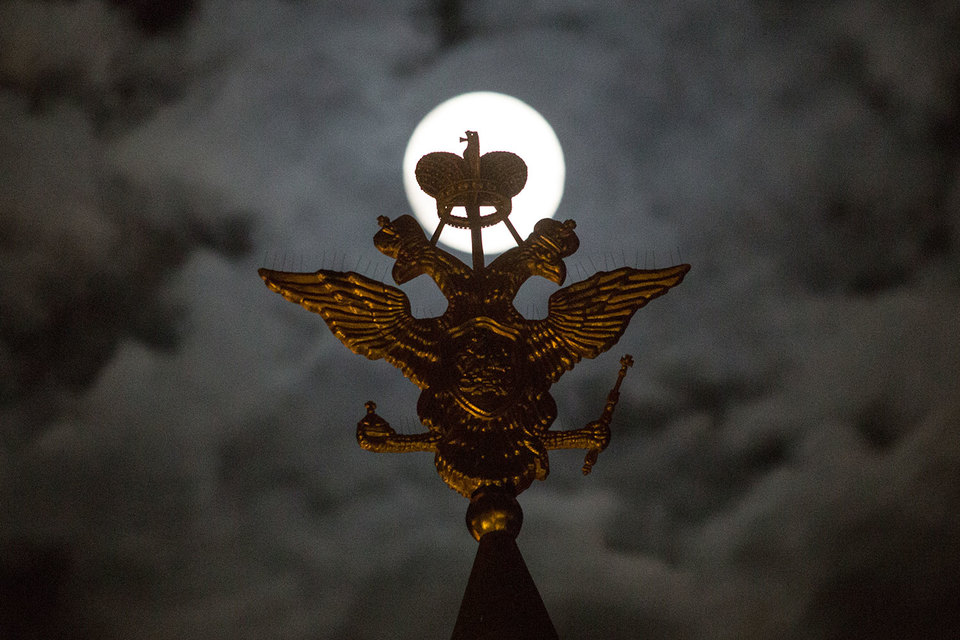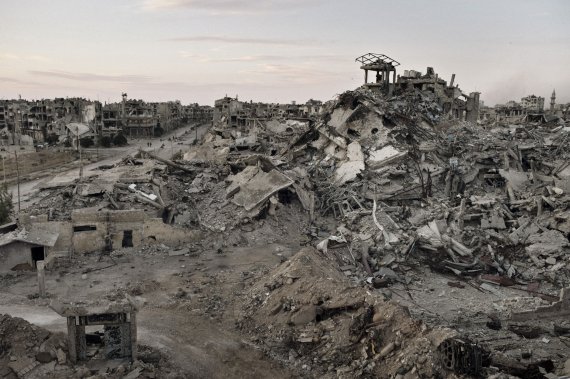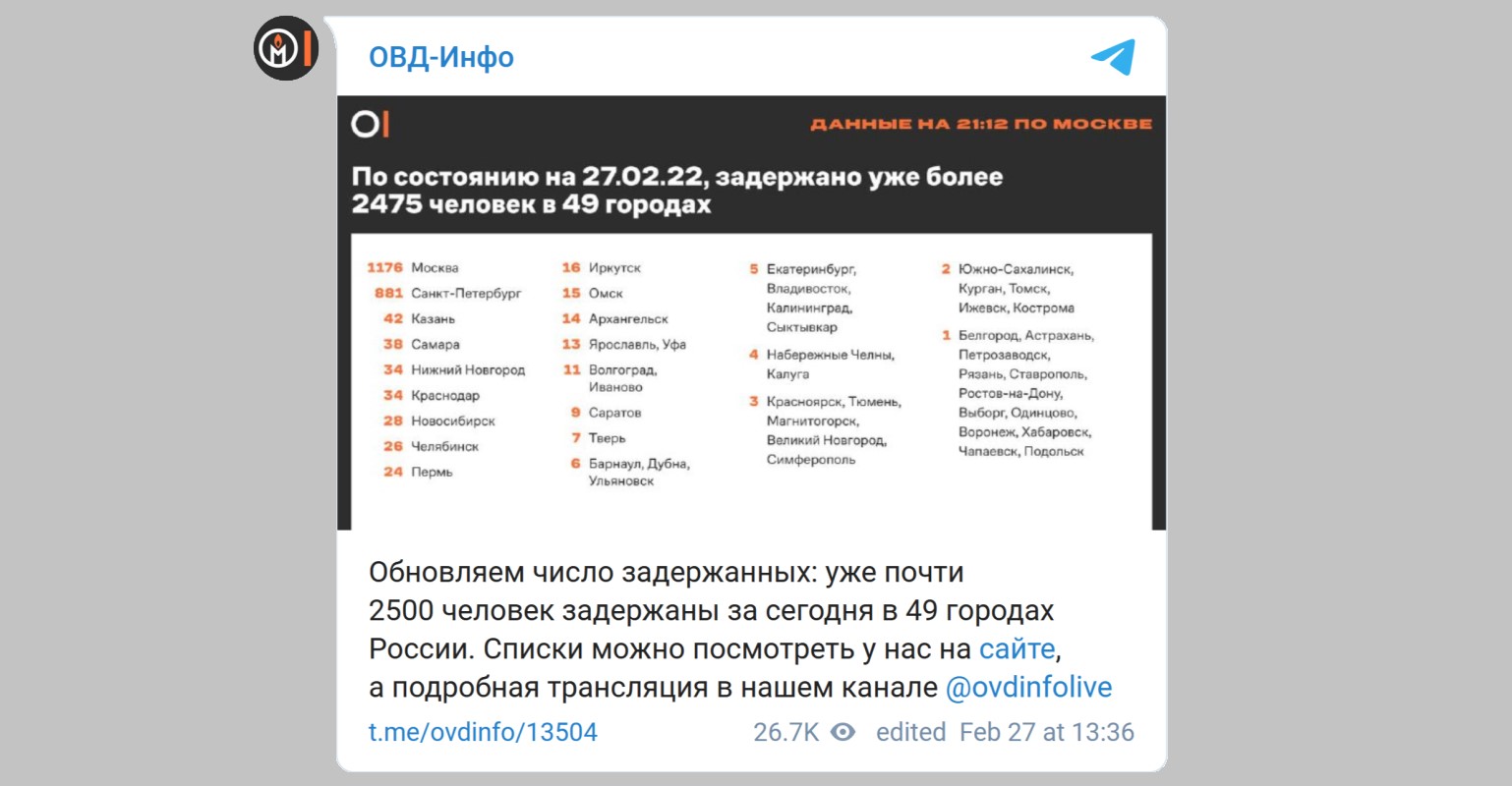The new Russian revolution, Vladimir Pastukhov says, is today “only a question of time” but will provide “a final answer to the question as to whether Russia will disappear altogether” or will prove capable of “transforming what is now the last colonial Empire into a Russian constitutional state.”

That will require moving in a direction that nearly all Russian leaders and most Russians as well fear, a radical decentralization of the political system that will “weaken the government’s power,” the St. Antony’s historian argues
. But “in reality, this is [the country’s] only salvation.”
Thus, the coming Russian revolution must be very different than its earlier ones if Russia is to survive, Pastukhov argues. “The Russian (Bolshevik) revolution by rights stands in one rank with such outstanding revolutions as the French and the American in that the world after it always was never the same as it had been.”
But the Russian revolution, he continues, “unlike the other great revolutions,” changed the trajectory of the rest of the world more than it changed Russia’s own.
The challenge for Russia now is not to get rid of this or that regime – that is a fairly easy and almost inevitable process, Pastukhov argues – but rather to overcome the autocratic social arrangements which have continued from imperial Russia through the Soviet Union into the Russian Federation now and which have no completely exhausted themselves.
Russian autocracy has its roots in the challenge of ruling over an enormously large territory. To overcome that approach, he suggests, requires either that Russia become much smaller, something few Russians want, or that it become federalized and polycentric so that power is dispersed.
This form of rule kept Russia together: indeed, without it, Russia almost certainly would not have the borders it has today. If it were possible for such an arrangement to continue, then things would not be so critical. But now autocracy has outlasted its purposes: it cannot fulfill its mission and thus must be replaced.
Russia faces problems not only because of the size of its territory but because of the diversity of the regions and the peoples living on them. And historically, regimes in Russia have responded by “hyper-centralization,” and oppositions have begun by demanding decentralization only to insist later on centralization to carry their programs out.
Compounding these Russian problems is that Russia, in sharp contrast to Europe, has seen state power combined with the religious authorities, leading political leaders to insist on the sacredness of power itself and to use force to defend it. That makes it harder for them and for the population to challenge autocracy.
Moscow must not be the only center anymore: there must be “up to 20” powerful regional centers. In short, Russia must become a federation.
“Federalism is what people always talk about in Russia but which has never existed in it.” And therefore, it must be created “’from zero
’ if [Russia] wants to be preserved as a single and sovereign state in its current borders beyond the first half of the 21st century,” according to the Russian historian.
“For very many people both in Russia and abroad, this dilemma – disintegration or federalism – appears either invented or inappropriate or incorrectly formulated,” Pastukhov suggests. But “the question about a federation is the key question on the answer to which depends not only the future of the Russian state project.”
It is a good thing that the founding fathers of the post-communist Russian constitution at least called the country a federation because there exists in society “a latent anti-federal consensus” which includes not only the regime, the nationalist opposition, but also liberals as well.
Indeed, Pastukhov says, “while in the best case acknowledging federalism in words, an enormous number of people consider it some kind of Soviet survival like Lenin’s mausoleum on Moscow’ Red Square – something that would be good to do away with but that, as long as Soviet veterans are alive, it is better not to touch.”
Pastukhov suggests that Russia should have an asymmetric federation at least to begin with, one that will have 20 to 30 federal states
that will be full-fledged subjects of the federation from the beginning and federal “lands” that will be administered from the center until they are ready to make the transition to states.
“The new subjects,” he suggests, “should be created around several of the largest megalopolises, which must become the centers of economic growth and at the same time the administrative centers of the states.” They should not be based on ethnicity, Pastukhov says, and Russia should entirely dispense with the Soviet tradition of “solving the nationality question” by drawing state borders within the country.
Achieving that set of arrangements will not be easy and it will not happen quickly, the historian concludes; but only if Russians recognize that no revolution will really be a great one until federalism is achieved, does the country and its nation have a chance to escape autocracy and have a future.
Related:
- Russia and Belarus protests – ‘part of general crisis in post-Soviet space,’ Portnikov says
- Western leaders again more afraid of Russian disintegration than of Russian threat, Kasparov says
- The Russian Federation’s disintegration won’t be like the USSR’s, Zhordan says
- The longer Russia occupies Crimea, the more likely Russia will disintegrate
- Post-Soviet Russian empire entering ‘second phase’ of disintegration, Lukyanenko says
- Kremlin's losing battle: Next stage of disintegration of Soviet space
- Moscow's pursuit of imperial greatness may again end with disintegration of Russia, Rubtsov says





